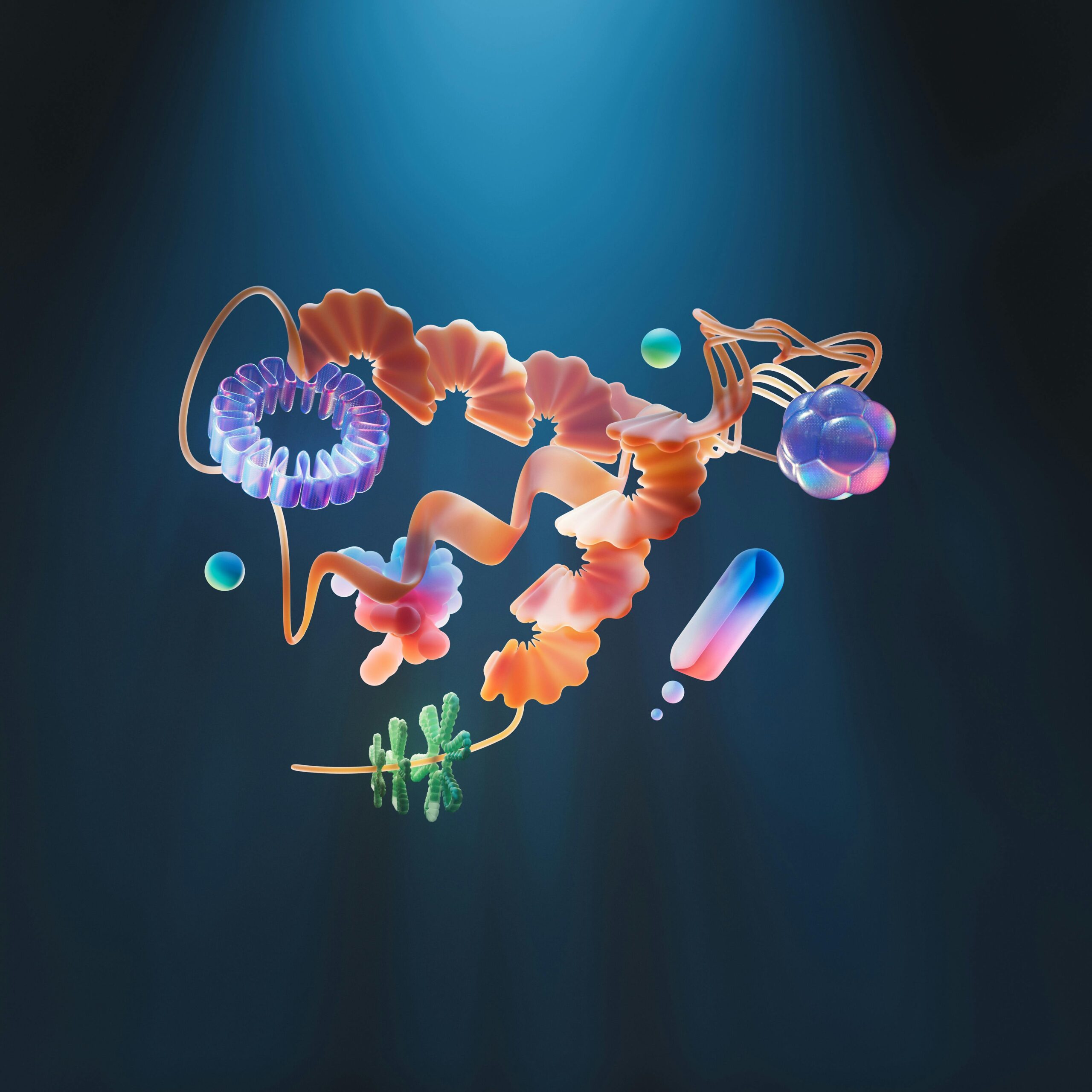Our stomach acid is one of the most powerful substances in our body. With a pH ranging from 1.5 to 3.5, it’s capable of breaking down tough proteins, killing harmful bacteria, and triggering the rest of our digestive system to do its job. But here’s something you might not know: humans have stomach acid as strong—or stronger—than most carnivores.
So why did we evolve this way, and why are more people than ever suffering from acid reflux, indigestion, and other stomach acid-related issues?
Let’s dig in.
Human Stomach Acid: Surprisingly Carnivorous
Compared to other animals, human stomach acid is extremely acidic. Here’s how we stack up:
- Humans: pH ~1.5 to 3.5
- Carnivores (e.g. lions, wolves): pH ~1 to 2
- Omnivores (e.g. pigs): pH ~2 to 4
- Ruminants (e.g. cows, deer): pH ~5 to 7
Carnivores need strong acid to quickly break down meat and kill off pathogens from potentially spoiled flesh. Herbivores and ruminants eat vegetation, which decomposes more slowly and carries fewer pathogens, so they don’t need such an acidic environment.
But humans? We’re somewhere in between—but our stomach acid is closer to that of scavenging carnivores than to herbivores. Some scientists believe our highly acidic stomachs evolved not just for digestion, but as a defense mechanism. Early humans likely consumed a mixed diet that included raw meat, old carcasses, and other microbe-rich food sources. Strong acid helped us survive these meals by neutralizing dangerous pathogens.
So Why the Rise in Acid Reflux?
If our bodies are built to handle strong stomach acid, why do so many people suffer from acid reflux, heartburn, and GERD (gastroesophageal reflux disease) today?
Here are some major reasons:
1. Modern Diets Overload the System
Highly processed foods, large meals, sugar, and low-fiber diets can throw our digestion out of balance. Fatty or fried foods relax the lower esophageal sphincter (LES)—the valve between the stomach and esophagus—allowing acid to creep upward.
2. Stress Disrupts Digestion
Chronic stress impairs digestive function, reducing stomach acid production when it’s needed (leading to poor digestion) and potentially causing imbalances in pressure that contribute to reflux.
3. Low Stomach Acid, Not High
Ironically, many people with reflux symptoms actually have low stomach acid. When digestion slows due to insufficient acid, food ferments and creates gas, which can force acid up into the esophagus. The symptoms feel the same—burning, bloating, discomfort—but the root cause may be the opposite of what you’d think.
4. Overuse of Antacids and PPIs
Medications like proton pump inhibitors (PPIs) and antacids are often used to relieve symptoms, but long-term use can lead to reduced acid production, poor nutrient absorption (like B12 and magnesium), and even increased infection risk.
What Can You Do?
Here are a few tips for supporting healthy stomach acid and digestion:
- Eat smaller meals to reduce pressure on the LES.
- Avoid eating late at night, especially heavy meals or alcohol.
- Incorporate bitter foods like arugula, dandelion greens, or apple cider vinegar before meals (if tolerated).
- Chew your food well—digestion starts in the mouth.
- Manage stress through movement, mindfulness, or other healthy outlets.
- Talk to your doctor before starting or stopping acid-reducing medications.
Final Thoughts
Our stomach acid is one of the body’s oldest tools in the fight against disease and poor digestion—yet modern life seems to work against it. Understanding how we compare to other animals can give us clues into why our digestive systems evolved this way and why they’re struggling now. The key isn’t always to reduce acid, but to balance it and support the body’s natural processes.
If you’ve been battling acid reflux or chronic digestive issues, it might be time to look not just at your symptoms—but at the system as a whole.
🔬 Scientific and Medical Sources
- Human Stomach Acid pH and Comparison to Animals
- Beasley, D. E., Koltz, A. M., Lambert, J. E., Fierer, N., & Dunn, R. R. (2015). The evolution of stomach acidity and its relevance to the human microbiome. PLOS ONE, 10(7): e0134116.
👉 https://doi.org/10.1371/journal.pone.0134116 This study shows that scavengers and humans have comparably low stomach pH levels, suggesting a microbial defense function.
- Beasley, D. E., Koltz, A. M., Lambert, J. E., Fierer, N., & Dunn, R. R. (2015). The evolution of stomach acidity and its relevance to the human microbiome. PLOS ONE, 10(7): e0134116.
- Low vs. High Stomach Acid in Reflux
- Wright, J. V. (2001). Why stomach acid is good for you: Natural relief from heartburn, indigestion, reflux & GERD. M. Evans & Company. Although not a peer-reviewed journal, this book is frequently cited in integrative medicine circles regarding the role of hypochlorhydria (low stomach acid) in reflux.
- Stress and Digestive Dysfunction
- Taché, Y., & Bonaz, B. (2007). Corticotropin-releasing factor receptors and stress-related alterations of gut motor function. The Journal of Clinical Investigation, 117(1), 33–40.
👉 https://doi.org/10.1172/JCI30005 Shows the effect of chronic stress on gastrointestinal motility and acid secretion.
- Taché, Y., & Bonaz, B. (2007). Corticotropin-releasing factor receptors and stress-related alterations of gut motor function. The Journal of Clinical Investigation, 117(1), 33–40.
- Proton Pump Inhibitor (PPI) Risks
- Freedberg, D. E., Kim, L. S., & Yang, Y.-X. (2017). The risks and benefits of long-term use of proton pump inhibitors: Expert review and best practice advice from the American Gastroenterological Association. Gastroenterology, 152(4), 706–715.
👉 https://doi.org/10.1053/j.gastro.2017.01.031 Discusses nutrient absorption issues, infection risk, and other downsides to long-term acid suppression therapy.
- Freedberg, D. E., Kim, L. S., & Yang, Y.-X. (2017). The risks and benefits of long-term use of proton pump inhibitors: Expert review and best practice advice from the American Gastroenterological Association. Gastroenterology, 152(4), 706–715.
- Diet’s Role in LES Pressure and Reflux
- Kaltenbach, T., Crockett, S., & Gerson, L. B. (2006). Are lifestyle measures effective in patients with gastroesophageal reflux disease? An evidence-based approach. Archives of Internal Medicine, 166(9), 965–971.
👉 https://jamanetwork.com/journals/jamainternalmedicine/fullarticle/410858 Provides evidence linking dietary triggers to LES relaxation and reflux symptoms.
- Kaltenbach, T., Crockett, S., & Gerson, L. B. (2006). Are lifestyle measures effective in patients with gastroesophageal reflux disease? An evidence-based approach. Archives of Internal Medicine, 166(9), 965–971.



